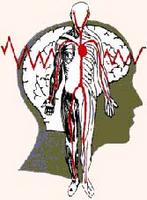All these questions pose serious threats to the notion of free will. But there is one more question, one that is far more serious, and which presumably has graver consequences than many of them: that of determinism.
"Determinism is the view that, for everything that happens, there is a condition or set of conditions which are causally sufficient for that thing happening." - Oakley (2001).
 Determinism applies even if there is a "mind-substance", different from the physical stuff of our brain (and everything else). It seems to imply that there is no freedom for human beings (or for anything else, for that matter). The consequences of determinism seem grave. If no one chooses freely, how can we blame, praise, or punish? How would you look upon another, who acted friendly towards you, if you knew that the person had no choice in the matter? And wouldn't you yourself feel trapped, knowing you could not control your actions (even though you had the feeling you could control your actions)?
Determinism applies even if there is a "mind-substance", different from the physical stuff of our brain (and everything else). It seems to imply that there is no freedom for human beings (or for anything else, for that matter). The consequences of determinism seem grave. If no one chooses freely, how can we blame, praise, or punish? How would you look upon another, who acted friendly towards you, if you knew that the person had no choice in the matter? And wouldn't you yourself feel trapped, knowing you could not control your actions (even though you had the feeling you could control your actions)? (source: http://web.isp.cz/jcrane/IB/Free_will_determism.pdf
No comments:
Post a Comment